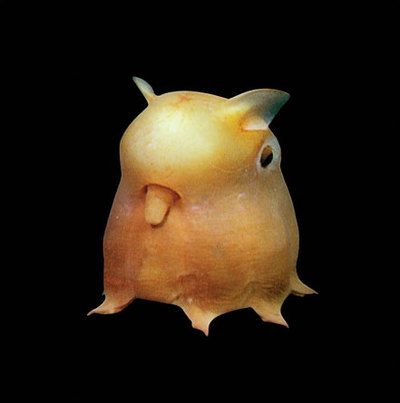Wild Versus Man

It began in July 2008 when
a mischievous squirrel successfully shorted a power circuit and cut off
electricity to 1800 homes in Telford, England. Then in November, Otto
the Octopus started causing black-outs at his aquarium in Germany by
sneaking up the rim of his tank and squirting water at the lights. Down
under, sharks have been on a killing spree since the summer, making
Australia the world's highest ranking country for shark-related
fatalities. On Jan. 15, a group of birds took down an entire plane in
New York. In February, a 5 year-old boy was eaten by a crocodile while
his brother watched the entire grotesque scene. During the same month,
two people died in Chitwan National Park in Nepal from animal attacks;
one the victim of a rhino, the other of a tiger, and a woman in
Connecticut was savagely mauled by a pet chimpanzee.
On any
given day, someone somewhere is being mauled to death by an animal. It
just makes sense. Animals outnumber humans by a large majority. Just
this weekend a shark took a bite out of a teenager in Australia, a bull
attacked two men in Connecticut, and after a series of maulings, a
ragingly aggressive dog is on the loose in San Antonio.
Are
the animals waging an all-out war on humanity, an uprising against the
oppressive forces of Man, or is this air of rising animal aggression an
illusion?
Animal attack stories inevitably attract media
interest. Tigers escape cages and rip tourists to shreds, monkeys chase
politicians to their deaths, squirrels cause severe inconvenience.
Singular
events don't become trends, but when those events start to cluster, a
kind of momentum builds in the public consciousness, and suddenly it
feels like a "spree" is in progress. And because human beings are
conditioned to find patterns, freakish events seem to snowball. Once
something strange happens, a similar event is more easily spotted, more
quickly relatable to some other occurrence until it starts to look like
a trend. We latch on to things if we see them again because of their
familiarity.
This process was exemplified by the recent slew
of "Bird versus Plane" stories. The Hudson River rescue began a long
series of bird-induced plane crash stories, and then just plane crash
stories, until it started to feel like something was seriously wrong
with the airplane industry, or that birds all over the world were
uniting in a bid to take back the skies. But birds crash into planes
every day, and sometimes the stories are pretty fantastic. Back in
October last year, a duck crashed through the windshield of a DC-3
plane and knocked out the pilot. According to Time, the copilot saved
the plane. It was an amazing story, and will definitely figure
somewhere in the plot of a future action-adventure movie about
disgruntled, ambitious birds jealous of man's occupancy of air space.
It could be tragic, moving, inspirational. Like Jonathon Living
Seagull, the modern fairytale of a bird who literally aims higher than
the rest, but with more blood and less good intention.

The Dumbo Octopus
But
there is another reason for the rising popularity of these stories:
nature is becoming stranger to us. Technically, it shouldn't feel
"unexpected" when humans get killed by animals. After all, such is the
nature of nature. If I were an animal, I might want to strike out at a
few humans once in a
while too. After all, we can be pretty annoying, shoving cameras into
the faces of rare, shy species and chasing them around to create
award-winning documentaries
on "the beauty of nature." We're hypocrites. Animals who have forgotten
they are animals. We've created a weird, self-reflexive vision of
"nature" that requires watching it through a piece of furniture. The
growing media landscape also allows easier access into the alien lands
of nature. We can watch a giant, elbowed octopus from a camera on a
deep-sea oil rig, or trawl the thousands of images of weird-looking
creatures, like the "leafy sea dragon" or the "dumbo octopus" that
looks remarkably like Pikachu. (In fact, Octopi are an untapped
resource for horror-movie nemeses. They are indisputably creepy.)
The
feeling that there is something "in the air" recently regarding animal
attacks and animal-related human deaths is due to more than the
congealment of stories about "vicious mauling" stewing on the wire or
special features on the Discovery Channel. Perhaps we've been
sensitised by some recent-ish events that hit a little too close to
home. The chilling documentary, Grizzly Man (2005), chronicling the
more-than-slightly-cuck-coo Timothy Treadwell as he attempts to become
"one with the bears" was a strange experience. We watched his
child-like naivete as he played Snow White in the epic landscape of
Alaska, befriending foxes and keeping a video journal, reciting his
prophetic mantra: "I will die for these animals, I will die for these
animals, I will die for these animals." It was uncomfortable,
succinctly revealing the human disconnect with the natural world. Then
in 2006, our favorite crocodile hunter, Steve Irwin ("Ah nah! It bit
me! What a souvenir!") got spiked by a Stingray, straight through the
heart. A real celebrity dying a movie-like death.
Perhaps
we've become more aware of the freakishness of nature, and our
relationship to it. We've encouraged its stronger presence in the
mainstream because it speaks to us of something lost, something hidden.
A culture's definition of strangeness is just as revealing as it's
definition of normality. We revel in the absolute lunacy of bear
attacks and sting-ray deaths in a world as "modern" as we believe ours
to be. Getting eaten by a crocodile just seems so much wilder in an
Internet age. Human beings may be excelling technologically beyond the
natural realm, but sometimes, the real world bites back.



